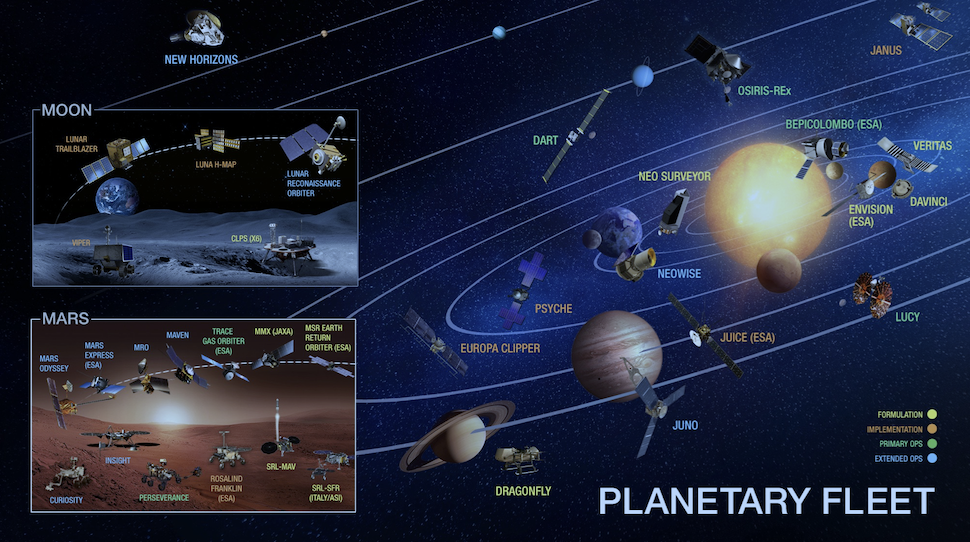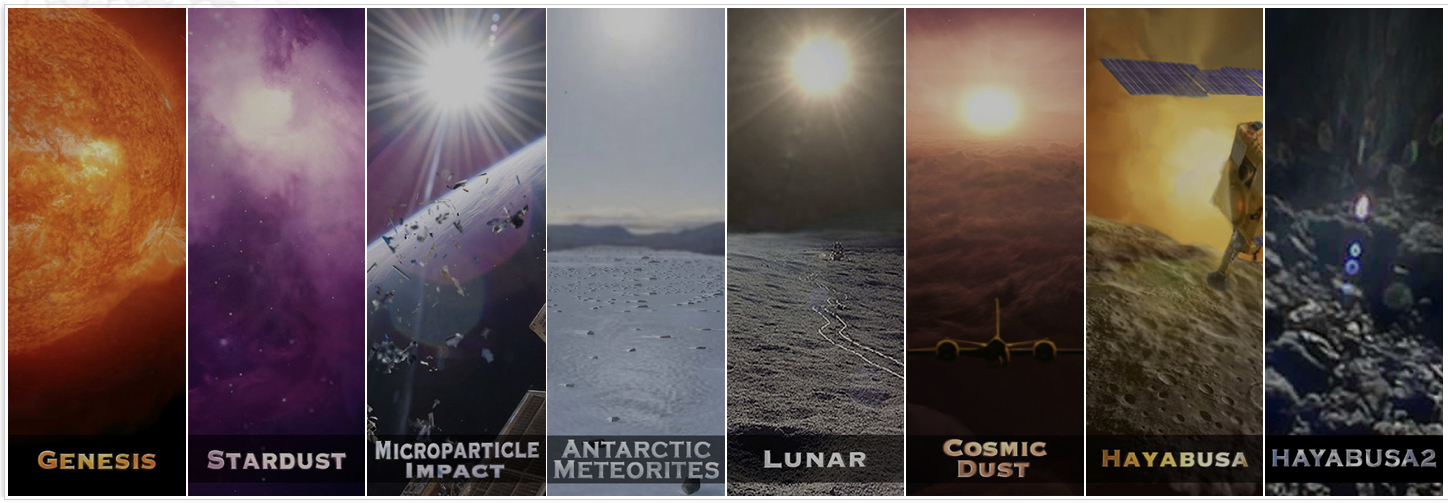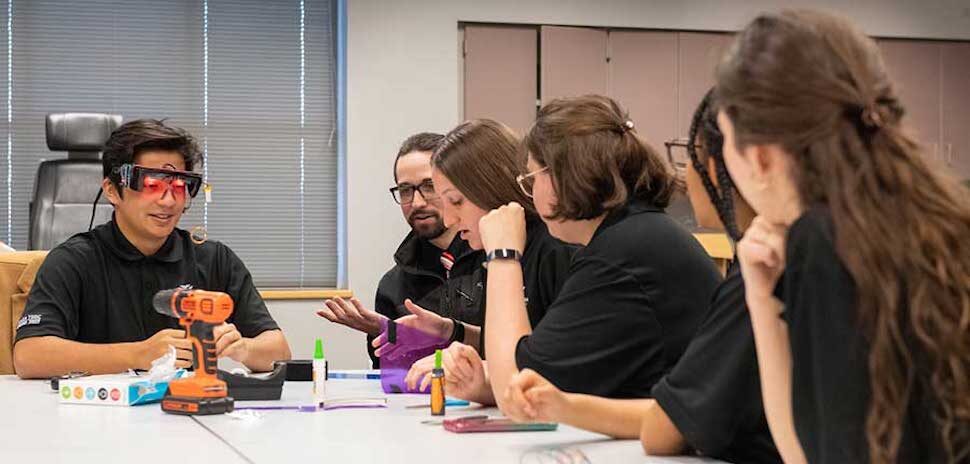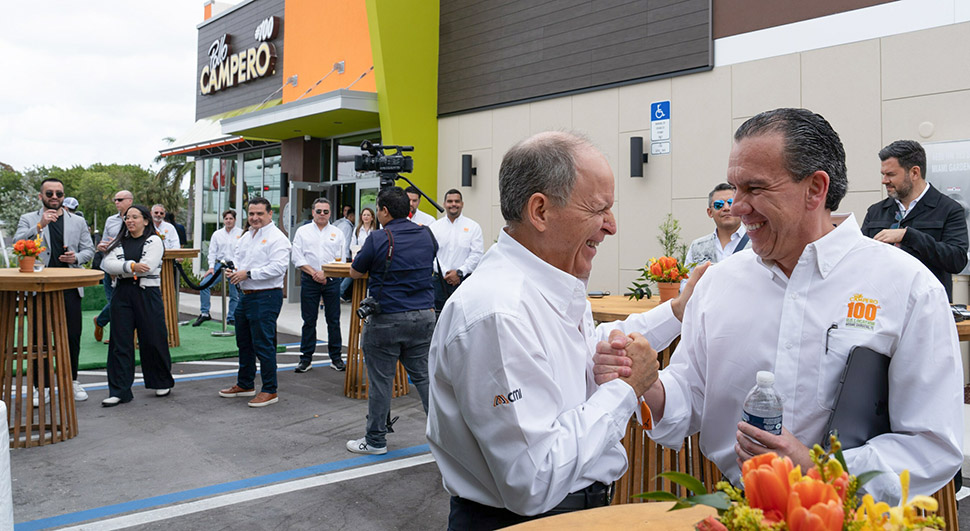Jacobs—the Dallas-based engineering giant with $14 billion in revenue and a global workforce of 55,000—just landed a contract that’s out of this world.
Today Jacobs announced a new 10-year JSC Engineering, Technology, and Science II contract at NASA’s Johnson Space Center in Houston. The agreement extends Jacobs’ 17-year run of supporting human space exploration at the center, as well as its 50-year partnership with NASA overall. Over the next decade, the company will continue to provide NASA with engineering, scientific products, and technical services as NASA’s largest service contractor.
“Throughout our 50-year partnership with NASA, Jacobs has shared the agency’s commitment to advancing space science and exploration,” Jacobs Chair and CEO Steve Demetriou said in a statement.
“The JETS II contract builds on more than 17 years of continuous support at JSC—a key component of our NASA portfolio, which includes nine locations across the agency,” Demetriou added. “With this latest award from our JSC customer, Jacobs remains well positioned to support the future of human space exploration.”
‘Furthering our knowledge of the universe’

[Photo: NASA]
At nearly $4 billion, the contract covers a lot of deliverables. Jacobs will provide engineering design, development, sustaining engineering, analysis, assessment, tech development, test services, and lab and facility operation and maintenance for the Johnson Space Center’s Engineering Directorate.
Jacobs will also deliver “planetary missions research, physical science research, astromaterial curation,” and lab/facility operation and maintenance for the space center’s Exploration Integration and Science Directorate.
Engineering and related services will also be provided to other organizations at the Johnson Space Center, along with other centers and U.S. agencies.
“JSC plays an integral role in both current and next-generation exploration and science programs,” said Steve Arnette, EVP and president of Critical Mission Solutions at Jacobs, in the statement. “Our commitment to providing efficient and innovative solutions through the JETS II contract will support NASA in furthering our knowledge of the universe while creating a more connected, sustainable world.”
‘Full lifecycle aerospace solutions’
The JETS II contract extends Jacobs’ continuous partnership with the Johnson Space Center dating back to 2005. Jacobs provides “full lifecycle aerospace solutions” for the center, including design and construction; base, mission, and launch operations; capital maintenance; “secure and intelligent” asset management; and development, modification, and testing processes for fixed assets that support U.S. government, military, defense and NASA projects, as well as projects for commercial space companies.
Planetary missions research

NASA’s Planetary Fleet chart. The agency’s spacecraft have explored every planet in our solar system. [Image: NASA]
NASA has a goal of “pushing the limits of spacecraft and robotic engineering design and operations” to help explore planets and advance planetary science.
To accomplish that, NASA spacecraft have visited every planet in our solar system, along with many smaller bodies moving through space. Some of NASA’s current missions have a goal of bringing back new samples from beyond Earth, enabling detailed study and analysis.
One of Jacobs’ missions under its new JETS II contract is delivering planetary missions research that will aid NASA in its goal of further exploring our solar system. The planetary missions include all the Mars Rovers, like the Mars 2020 mission aboard the rover Perseverance. Jacobs’ scientists “are actively involved in the mission management teams tasking instruments aboard the rover through remote operations, as well as the entire scientific cycle from sample analysis through publication of findings,” according to Jacobs Corporate Communications.
Stardust, solar wind, and Antarctic meteorites

Images from the website of NASA’s Astromaterials Acquisition and Curation Office. [Images: NASA]
Another mission Jacobs shares with NASA is “astromaterial curation.” NASA’s Astromaterials Acquisition and Curation Office, part of the Astromaterials Research and Exploration Science (ARES) Division, is tasked with curating extraterrestrial samples from NASA’s past and future “sample return missions.” That includes the documentation, preservation, and preparation of samples from the Moon, the planet Mars, asteroids, comets, and solar wind. NASA says the office’s highest priority is “to secure the future availability of these samples for the worldwide scientific community.”
As part of its new JETS II contract, Jacobs will provide comprehensive astromaterials curation services to NASA’s Johnson Space Center. The services include “maintaining the unique facility of vaults, processing labs, and research labs that house the agency’s collections of geologic samples from around the solar system,” according to Jacobs Corporate Communications.
Jacobs also provides “a full suite of geo-science research laboratories for the study of planetary science using the full range of astromaterials.” This includes maintaining and operating research facilities, procuring and maintaining major science instruments, and operating the analytical instruments.
Jacobs’ research team is also “actively involved in conducting peer-reviewed research with the planetary science community.”
Physical science research
Jacobs will also be conducting physical science research for NASA under the new JETS II contract. NASA’s Physical Science Research Program has a key focus on “fundamental research” investigating “physical phenomena in the absence of gravity and fundamental laws of the universe.”
NASA’s physical science program also explores applied research, with a goal of expanding knowledge of space exploration technologies, including “power generation and storage, space propulsion, life support systems, and environmental monitoring and control.” Research to date has led not only to improved space systems, but to new products on Earth as well, NASA says.
Space may be the final frontier. But for Jacobs, helping NASA explore it is just another day at the office—one that could make history at any time, and change the way we see both our world and the cosmos beyond it.
![]()
Get on the list.
Dallas Innovates, every day.
Sign up to keep your eye on what’s new and next in Dallas-Fort Worth, every day.






































































